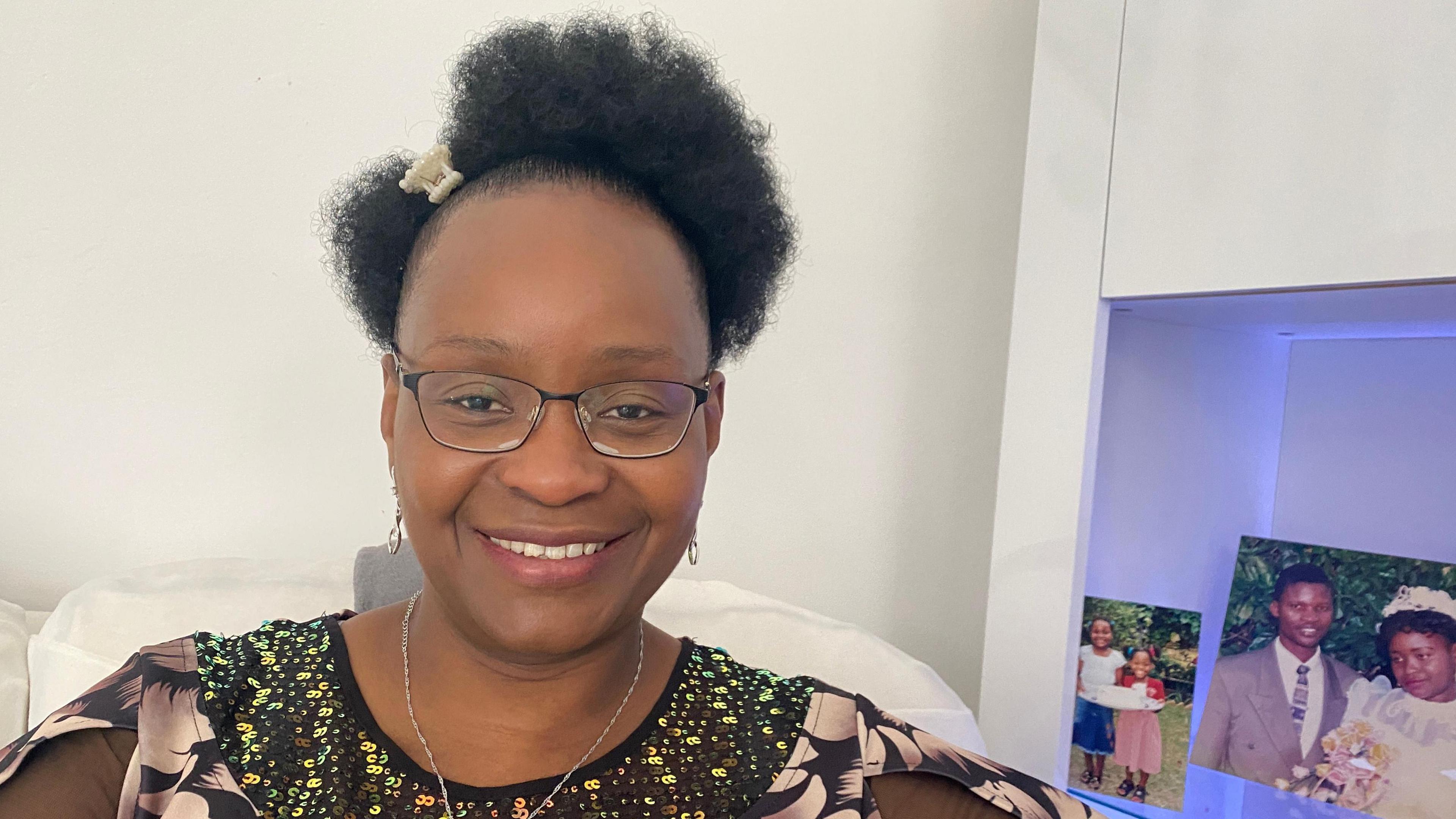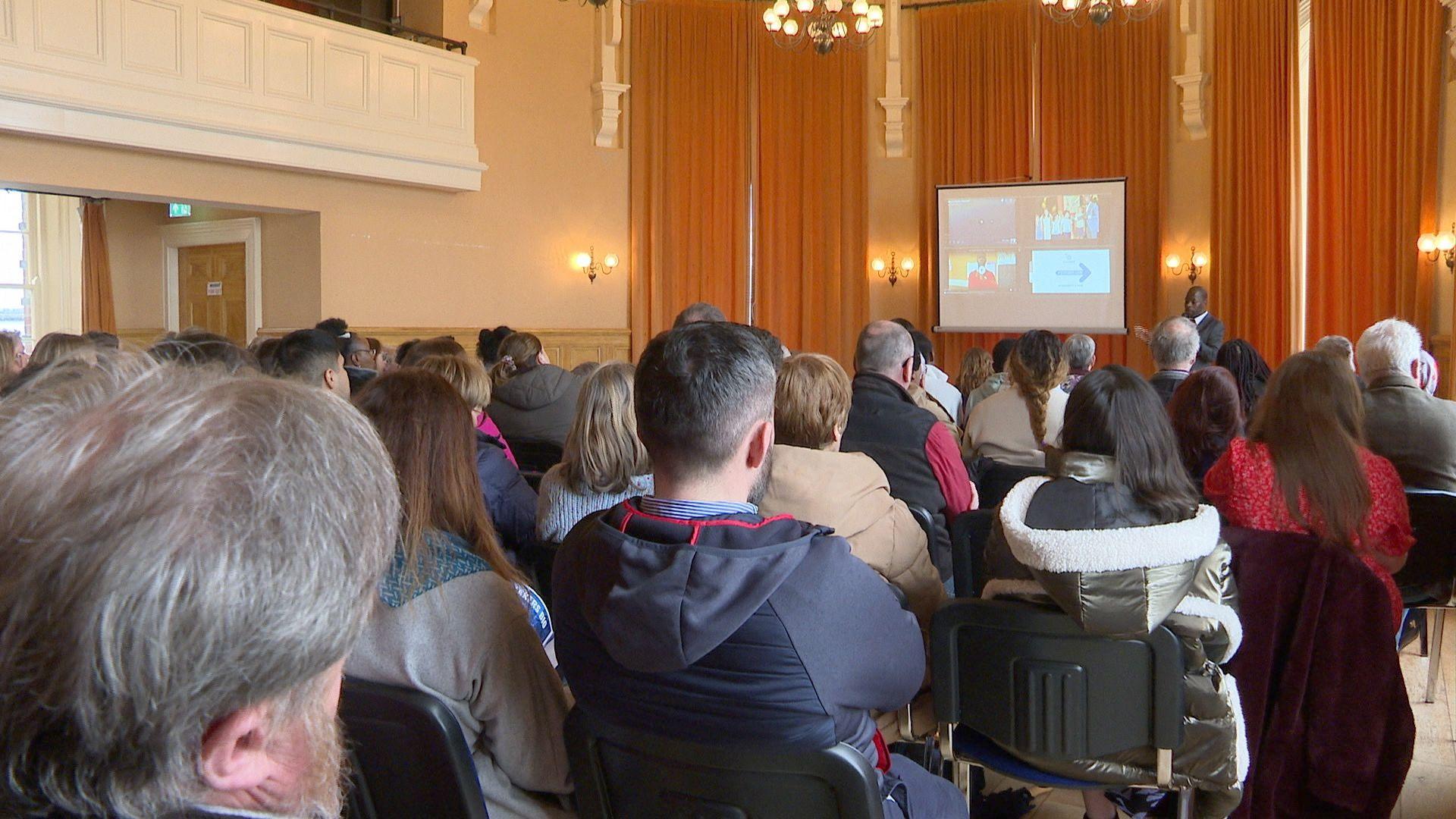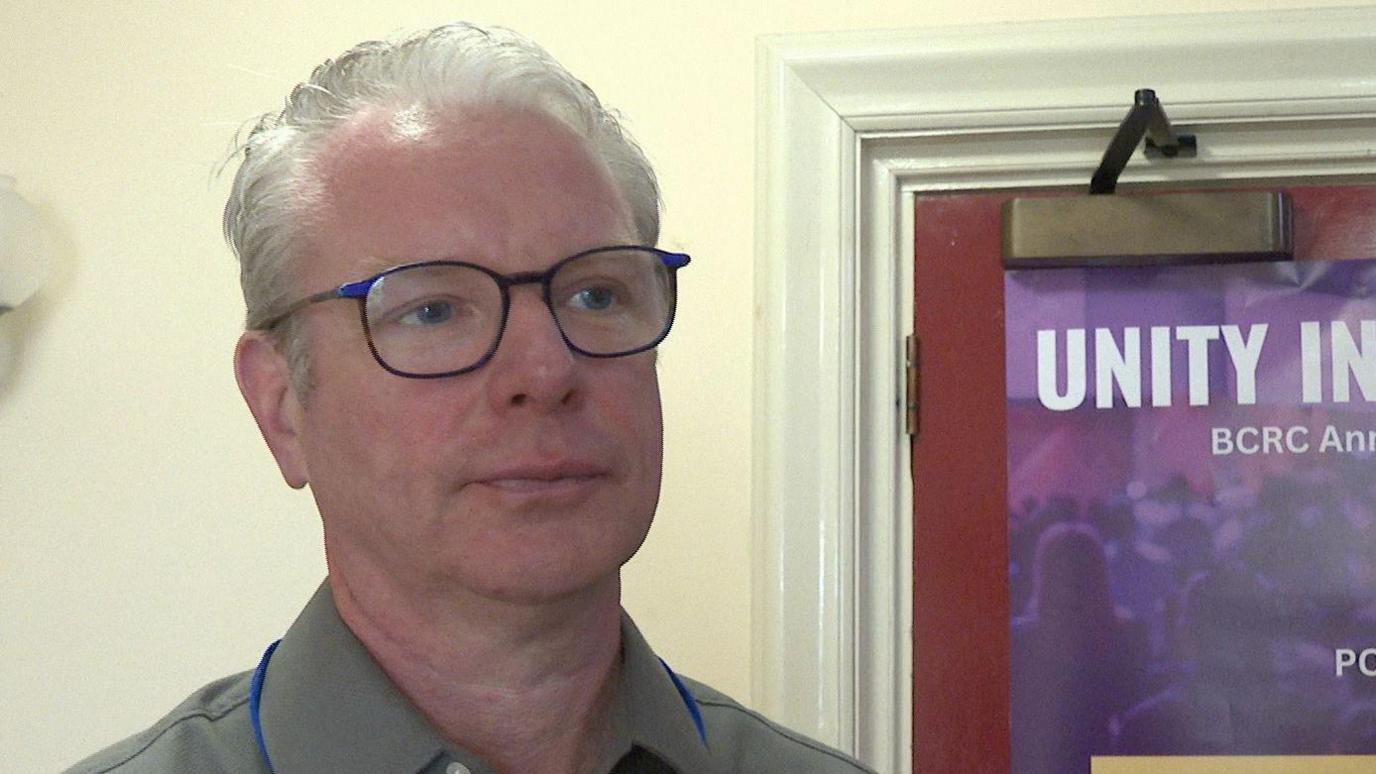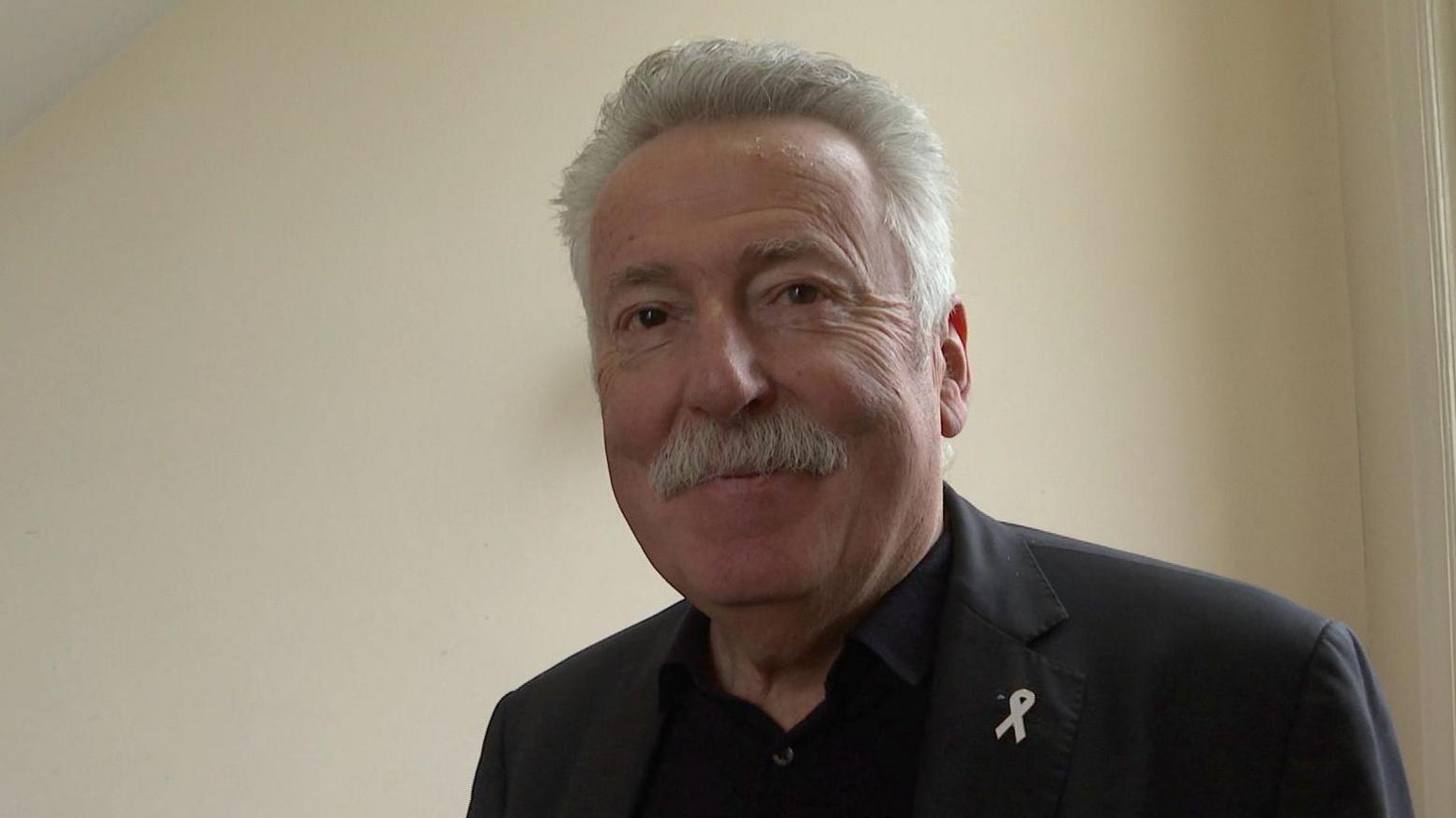Adapting to the challenges of a new life in NI

Sibo has lived in Coleraine for four years
- Published
Sibonginkosi Mafundirwa - known as Sibo - only has artificial flowers in her garden in Coleraine.
She likes them because they bloom all year round like the flowers do in her homeland of Zimbabwe.
While the changeable weather in Northern Ireland has delighted Sibo, her move here has been difficult.
“It's like you're starting life from scratch. I can't say we have settled down in this foreign land. It's very difficult," she said,
"We had a lot of challenges, this life is very different from back home."
'We're all humans'
Building a new life in Northern Ireland has been made more difficult by the racism Sibo and her family have experienced.
"You go to some places where you feel not welcomed. No one talks to you. And you take your child to the playground and they feel they're not welcomed," she said.
"My daughter is coming back back from school and she complains that some elderly, some big men called her names because of her skin colour.
"An awful word a word that I cannot say - those experiences are stressful and scary.
"There should be awareness campaigns just to teach people not to say those things, it's only my skin that is different, but everything is just the same. We're all humans."

More than 100 people attended the conference in Portrush
A shoulder to lean on
Sibo has found support - The Building Communities Resource Centre (BCRC) has been a lifeline for her.
"They've given me a listening ear. They've given my my family a shoulder to lean on. They've given me social life," Sibo said.
"They have helped me to connect with other people from different ethnic groups."
And this week BCRC continued its work to help bring people together by hosting a conference called Unity in Diversity.

Fergal Quinn organised a conference on diversity
Fergal Quinn, the Ethnic Communities Officer at BCRC, said the decision to hold this conference was motivated by the increasing number of immigrants coming to Northern Ireland.
"People didn't really come to Northern Ireland very often from other parts of the world because of its chequered past.," he said.
"So now people are seeing it as a place they can come to when they're fleeing war, persecution and violence.
"Sometimes when people from here see people come in they think about the things they take; the health service, jobs, benefits and so on.
"But what we witness is what they bring to our communities. The experience, skills, knowledge and expertise.
"And also compassion and understanding because of what they've had to come through to get here."

Prof Tim Chapman spoke at the conference
More than 100 delegates attended to hear the experiences of immigrants in Northern Ireland and to learn from experts - such as Prof Tim Chapman - on how communities can better adapt to having an immigrant population.
"It's not easy - it's an adjustment for people who've lived here all their lives to see different people coming," he said.
"Immigration is a reality of life. War, famine, climate change all the things that make people, very reluctantly, leave their own homes.
"We need that range of skills our population is decreasing and we need people to fill certain jobs. But it also enriches our lives to be surrounded by different people rather than just people who look like us."